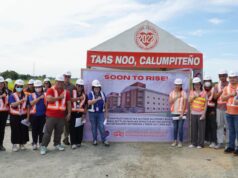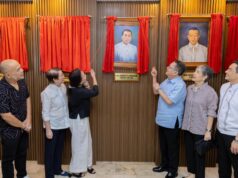CLARK FREEPORT – The National ID System is now on its pilot stage and will be implemented throughout the country by phase.
Edgardo Pare, Philippine Statistics Authority (PSA) regional director, said Republic Act (RA) 11055 or An Act Establishing the Philippine Identification System (National ID) which has a budget of P30 billion should be completed in five years-time.
Pare made the announcement at the media forum “News@ Hues” organized by the Pampanga Press Club in cooperation with Park Inn Hotel Clark by Radisson on Wednesday.
Pare said for this year, the PSA is targeting one million registrants belonging to the 4Ps sector and for next year it’s six to 10 million registrants. He added that in five years, 101 million Filipinos would have been registered.
Pare said the National ID is free of charge but registrants will have to bring government-issued IDs (passports, driver’s license, etc.) when registering where biometric data will be collected such as iris scan, facial recognition and thumb prints.
Basic information will also be collected from the registrants such as full name, sex, date of birth, place of birth, blood type and citizenship since aliens or foreigners can also avail of the National ID.
He said the National ID will have a unique serial number which is dependent on the registrant’s date of birth, place of birth and geographic code. It will be sequential for those who have the same names.
The information is encrypted data which requires a source code, he said. But Pare said the National ID is optional.
Pare said the PSA is mandated to conduct general purpose statistics and surveys mainly for the use of the national government.
The PSA also conducts Family Income and Expenditure Survey (FIES) for the determination of poverty incidence, poverty rates, etc. which are the basis for measuring the inflation rate.
The PSA also conducts census every 10 years or in years ending in zero.
“Aside from that, we implement the Civil Registry Law,” he said.
Pare also said the cost of getting birth certificates has increased from P140 to P155 because of the excise tax.
PSA data follows international standards for comparability, he said.
He said the PSA regional office in the City of San Fernando processes about 5,000 birth certificates per day which makes it the most visited and busiest agency in the regional government center.





